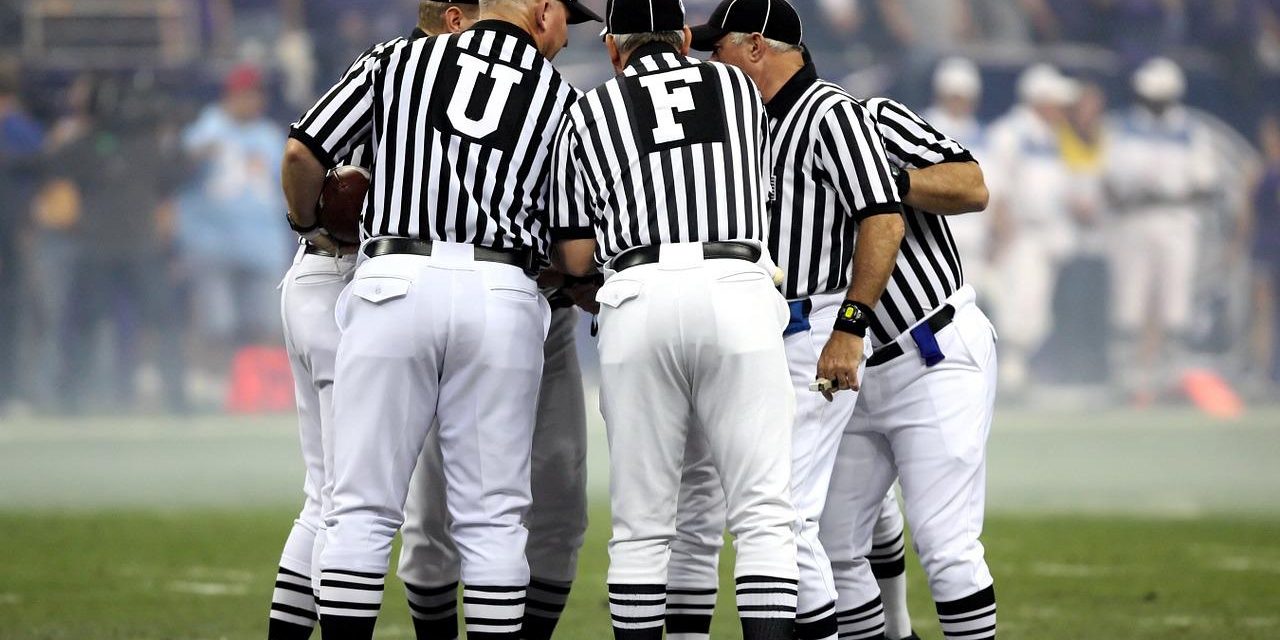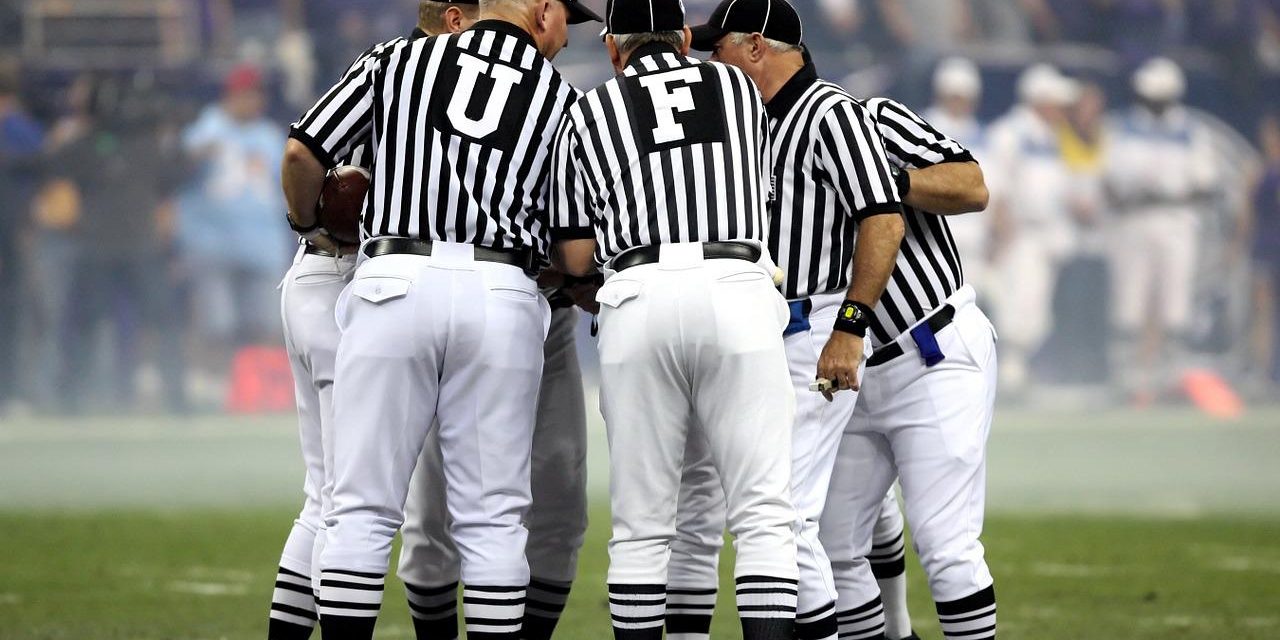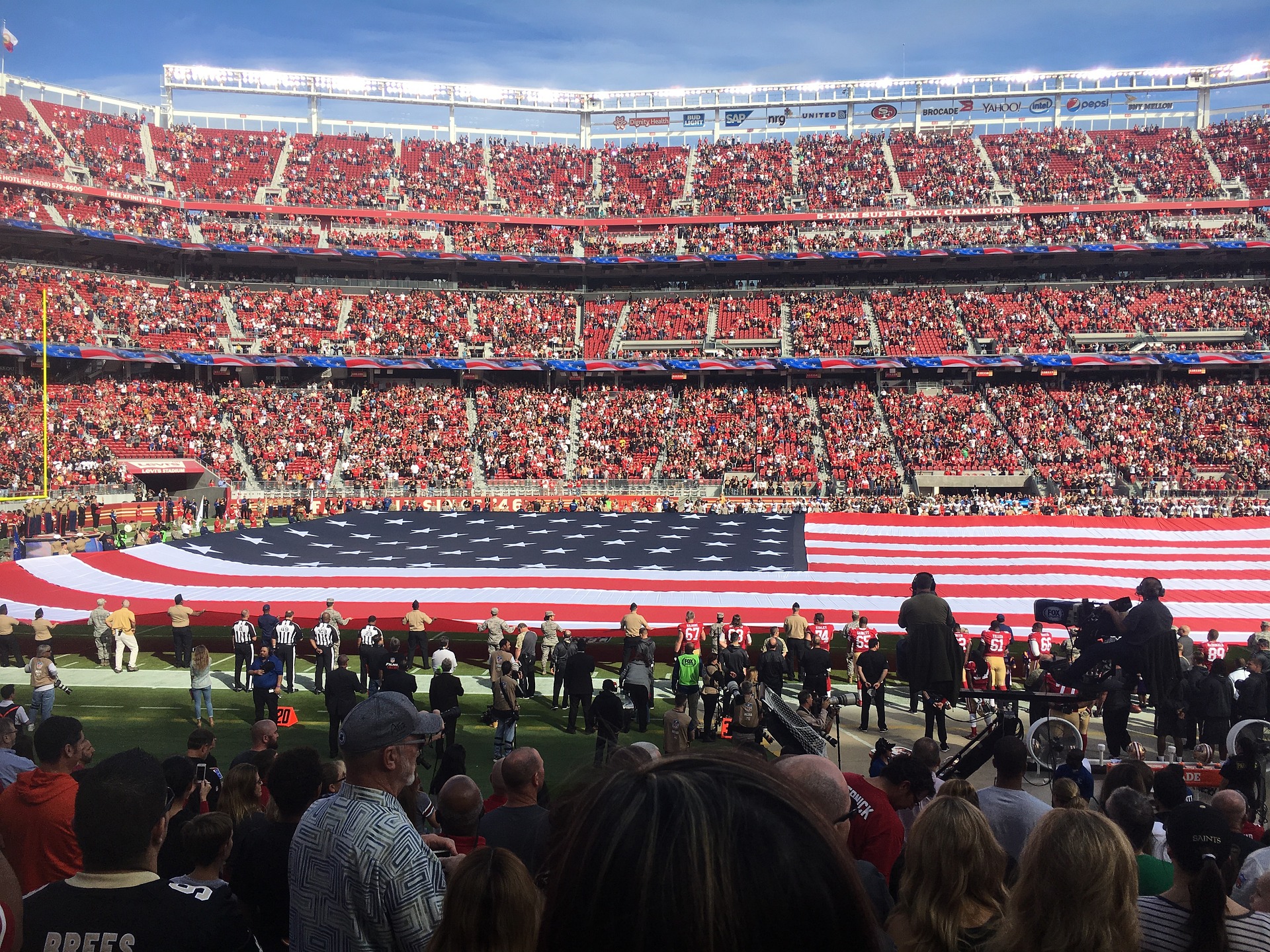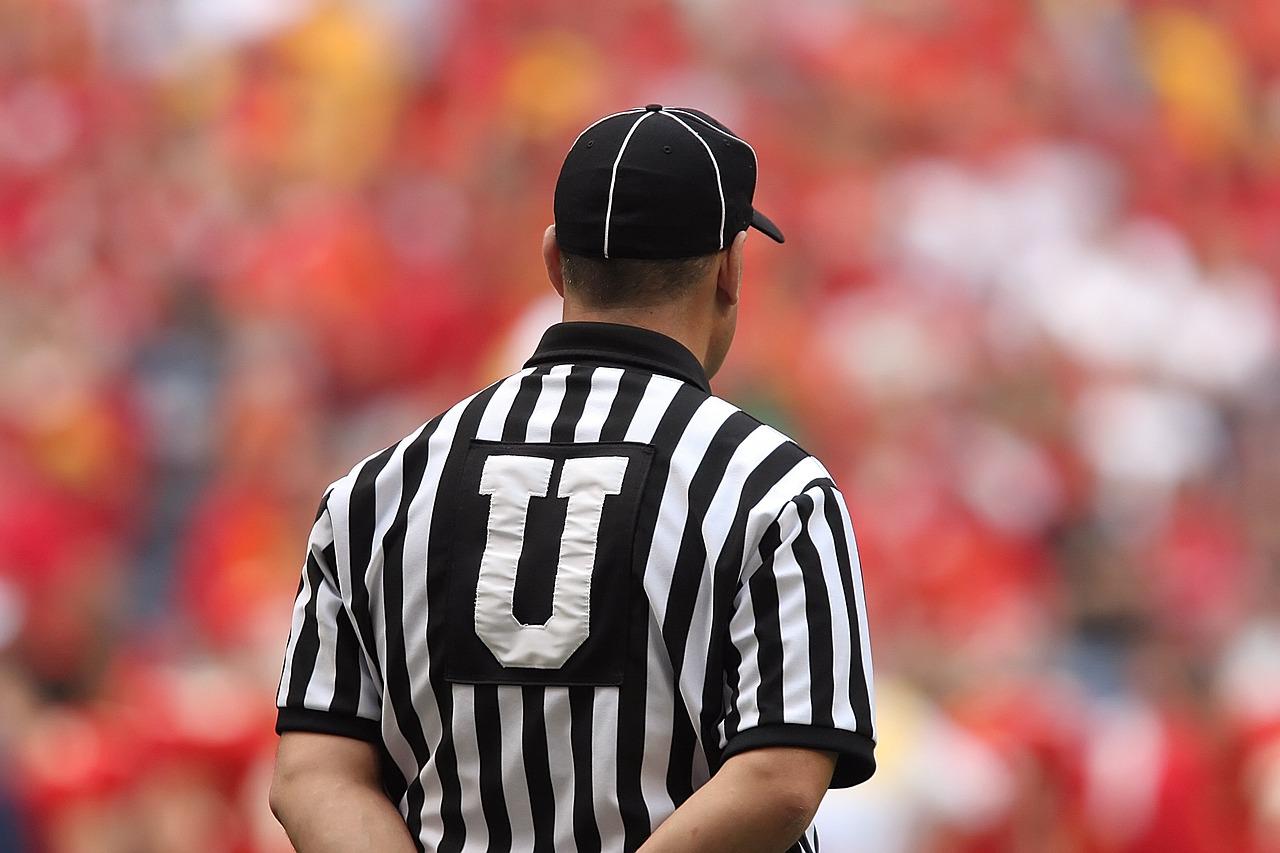How to Become an NFL Referee: Your Step-by-Step Career Guide


Becoming an NFL referee is a position that demands a comprehensive grasp of the sport’s rules, physical fitness, and the ability to perform under significant pressure. It’s not just about donning the black and white stripes; it’s about embodying the role of a fair and impartial adjudicator of one of America’s most beloved sports. The journey to becoming an NFL official is rigorous and competitive. It often starts at the lower levels of football, where you can gain valuable experience in officiating and learn the intricacies of the game. Aspiring referees must demonstrate their skills at the high school and college levels before even considering the jump to the professional stage.
NFL referees must possess extensive knowledge of the rules of football. This expertise comes from years of experience and a dedication to continually studying the sport. In addition to understanding the game, NFL officials need to maintain physical fitness to keep up with the speed of play. Once potential referees have acquired the necessary experience and training, they must then go through a thorough certification process. Progressing to the NFL level involves more than just on-field experience; officials also undergo evaluations and training specific to the NFL’s standards.
Key Takeaways
- Becoming an NFL referee requires a deep understanding of football rules and sustained physical fitness.
- Experience as a referee at the high school and college levels is typically necessary before progressing to the NFL.
- Certification and continual education are essential for NFL referees to stay current with the game’s standards.
Understanding the Role of an NFL Referee
NFL referees hold a position of great responsibility, demanding extensive knowledge and adherence to the highest physical standards. This role is integral for upholding the integrity of the game on the field.
Responsibilities
- Game Management: Officiating NFL games, including enforcing the rules, managing the game clock, and ensuring player safety.
- Decision-Making: Making quick, accurate decisions on penalty calls, often under significant pressure.
- Communication: Clearly explaining penalties and decisions to players, coaches, and sometimes to a broadcast audience.
Qualifications
- Experience: A minimum of 10 years officiating football is standard, with at least 5 years at a high collegiate level or equivalent.
- Physical Fitness: Maintaining excellent health and fitness to keep up with the demanding pace of NFL games.
- Education: Possession of a bachelor’s degree is a common requirement.
Skills Required
- Rulebook Proficiency: In-depth knowledge of the NFL rulebook is vital.
- Focus: Maintains attention to detail during high-pressure games and can adjust to the dynamic nature of live sports.
- Fitness: Demonstrates speed, stamina, and physical agility needed to track play on the field.
Educational Path and Experience
To serve as an NFL referee, candidates must have both formal education and substantial officiating experience.
Educational Requirements
Formal Education: Prospective NFL referees must hold at least a bachelor’s degree. It is beneficial to pursue a degree in related fields such as sports management or kinesiology, which provide a deep comprehension of the sports industry and the human body’s capabilities during athletic performance.
Gaining Relevant Experience
Officiating Experience:
- Start Early: Begin at the youth or high school sports level to acquire practical officiating skills.
- Association Membership: Join an accredited football organization; this is mandatory for those aiming to officiate in the NFL.
- Progressive Experience: Accumulate at least 10 years of experience, with a minimum of 5 at the collegiate or professional level, to demonstrate proficiency and advanced understanding of the game.
Physical Fitness: Maintain excellent physical condition to endure the demands of the game, keeping up with the athletes on the field.
The Certification Process
To become a certified NFL referee, candidates must undergo detailed training and pass several certification tests, confirming their understanding of the game, its rules, and their ability to officiate effectively.
Training Programs
NFL referees typically start by officiating at the high school or college level. During this period, they should enroll in training programs that cover the extensive rules of American football, on-field mechanics, and communication skills necessary for managing games and players. The programs often include observable training with skilled officials who provide advice on improving officiating techniques. Referees are also encouraged to join accredited football associations, which can offer additional training resources and opportunities for practical experience.
Certification Tests
Before becoming an NFL referee, candidates must pass a series of certification tests. These evaluations assess one’s knowledge of the NFL rulebook, which is the cornerstone of a referee’s profession. Tests often include both written and physical assessments – the former to gauge the understanding of rules and the latter to verify aptness in managing the physical demands of the game. Constant updates in rules mean that ongoing education and periodic re-testing are necessary to maintain certification.
Advancing in the Ranks
To become an NFL referee, a clear progression through officiating levels and extensive networking are essential for success.
Working Through Lower Leagues
Individuals start their journey to the NFL by gaining experience in entry-level football leagues. Typically, referees begin in high school competitions before advancing to officiating at the collegiate level. Requirements include a deep understanding of the game, strict adherence to the rulebook, and a high level of physical fitness. As referees improve, they can progress to minor professional leagues, where they continue honing their skills. Performance is often reviewed by authoritative organizations that preside over these lower divisions.
- Experience Needed:
- High School Football
- College Football (Minimum 5 years varsity level)
- Minor Professional Football
Networking and Opportunities
Building relationships within the football officiating community is vital. Attendance at officiating clinics can provide educational opportunities to study the game and practice making important calls. It’s recommended that aspiring referees connect with seasoned officials who can provide guidance and potentially direct them to advancement opportunities. Demonstrating proficiency in interpreting the NFL rulebook and maintaining exceptional physical condition may increase visibility and provide additional development chances.
- Key Networking Strategies:
- Attending officiating clinics
- Establishing connections with senior officials
- Membership in accredited football associations
Staying Updated and Maintaining Standards
To become an NFL referee, one must commit to constant learning and adhere to rigorous standards of physical fitness.
Continuing Education
NFL referees must participate in ongoing education to stay aware of rule changes, gameplay amendments, and officiating protocols. This education often involves:
- Annual training programs: These include workshops and seminars that focus on rule changes and points of emphasis for the coming season.
- Regular assessments: Officials may undergo exams to test their rule knowledge and review video materials to assess and improve decision-making skills.
Physical Fitness
Physical conditioning is critical for NFL referees to maintain performance throughout the grueling nature of professional football games. They must:
- Routine fitness evaluations: Adhere to a strict fitness regime and pass periodic fitness tests that confirm their ability to keep up with the physical demands of officiating.
- Off-season training: Engage in regular physical training during the off-season to ensure that fitness levels are maintained year-round.
You may also like: How Much Does an NFL Ref Make? Unveiling Officials’ Earnings





